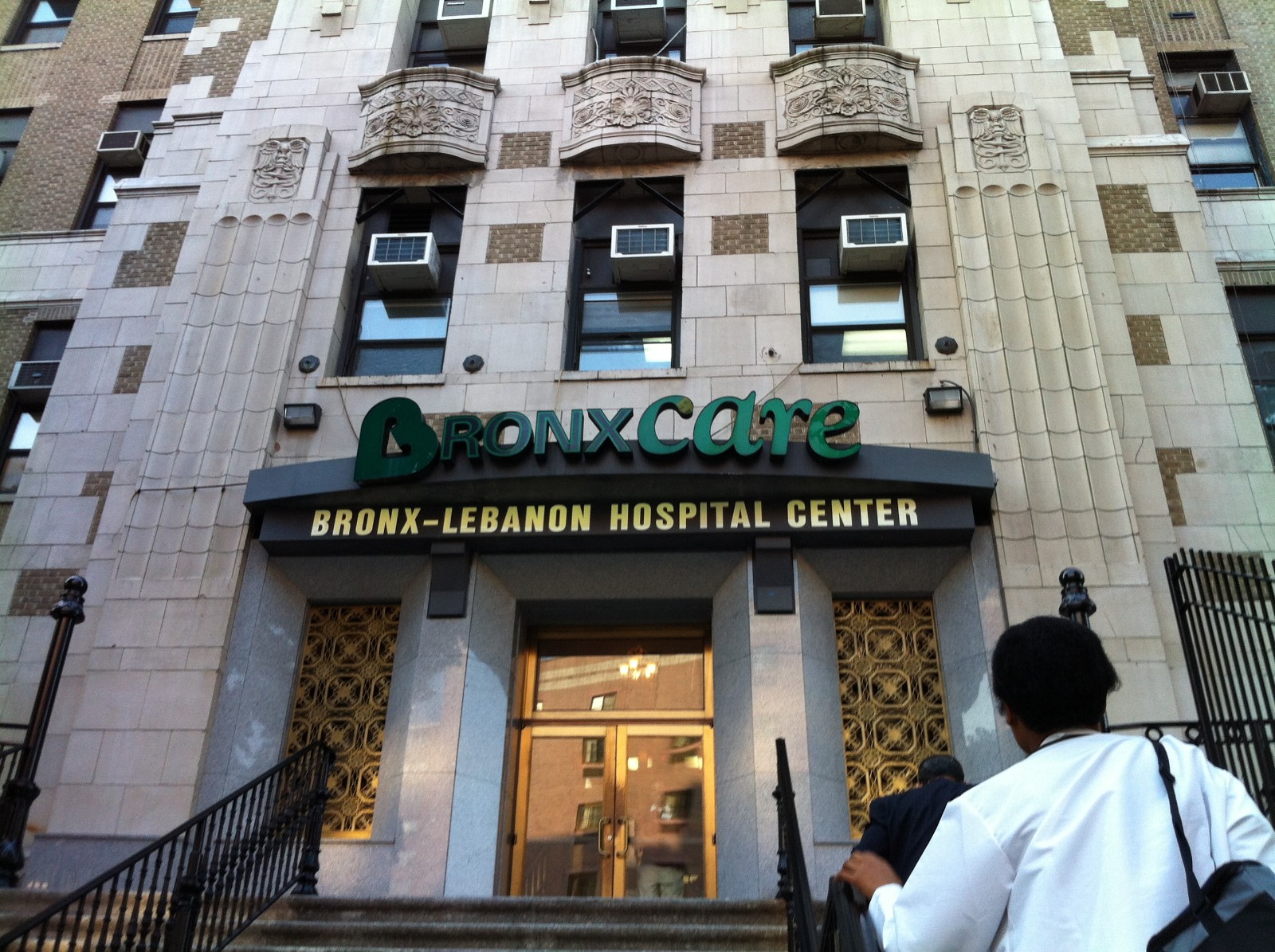The Dos and Don’ts of Clinical Rotations
 Sometimes it takes a few fumbles to get the hang of a rotation, and I’ve made a fair share of them. With every new rotation that we start, we’re always a little bit lost, as each attending and rotation may have different expectations of us, and require us to have different responsibilities. However, there are a few expectations that don’t change, no matter which rotation you are on. By the end of this week, I’ll be half-way done with my clinical years as a medical student. Here are some of the Dos and Don’ts I’ve personally learned along the way during my past 36 weeks of clinical rotations.
Sometimes it takes a few fumbles to get the hang of a rotation, and I’ve made a fair share of them. With every new rotation that we start, we’re always a little bit lost, as each attending and rotation may have different expectations of us, and require us to have different responsibilities. However, there are a few expectations that don’t change, no matter which rotation you are on. By the end of this week, I’ll be half-way done with my clinical years as a medical student. Here are some of the Dos and Don’ts I’ve personally learned along the way during my past 36 weeks of clinical rotations.
DO:
- Try to read up on information to look for answers before you ask questions. The attendings are usually very busy, and it’s polite not to keep bothering them on detailed, non-relevant, or factoid questions that you can easily look up. Only ask questions that are worth answering by your attending. The whole thing about how “there is no stupid question”… yeah, we can throw that out the window. The reality is that many attendings do judge students on the questions they ask.
- Offer your help. Ask your attending, “is there anything you’d like me to help out on?” Although our role as students is to learn during clinicals, it is a nice gesture (and often an expectation) to help out your attending or resident on different tasks. If you’re expected to do scutwork anyway, might as well look good doing it, and be positive about it. If your attending dismisses you for a lunch break, ask “is there anything you’d like me to bring for you?” to show that you appreciate them giving you a break. Some attendings don’t even give students lunch breaks, so appreciate the ones that do.
- Leave when your attending says you can leave. It looks bad to ask your attending everyday if you can leave early. On the flip side, you may also be potentially bothering your attending if you do not leave after he says you can leave. If your attending says you can leave for the day, thank him or her for their mentorship and leave.
- Thank your attending. Thank them each day when you go home. It shows that you appreciate their mentorship, and it looks good on your part. It shows you appreciate their time, even if you may feel otherwise.
- Document your experience. Carry around a notebook, clipboard, sheet of paper, or something where you can write down information, jot down notes, or make a list of tasks you need to do. Sometimes it’s hectic on the hospital floor and your attending might ask you to do a lot of things at the same time. To prevent you from forgetting, it’s always good to write it down, and be organized about it. Also, it’s always good to document the patients you see, things you learn, etc. in your notebook, so you can look back at it for your case logs, SOAP notes, case presentation, or just simply for your memory’s sake. It may also be helpful to document the types of cases and procedures you’ve seen or done. This way, when it comes time for residency applications or interviews, you can look back at it, and talk about your clinical experiences. Wouldn’t it be impressive if you can say that you’ve assisted in over 20 baby deliveries, or interviewed over 50 schizophrenic patients (and have the documentation to prove it)?
- Monitor your performance with your attending. During mid-rotation, it’s good to ask your attending “How am I doing as a student? Is there anything you feel I can improve on? I’d really like to learn as much as I can during this rotation.” The way we view ourselves may be very different from the way our attendings or patients view us, and therefore it’s important to get this perspective, and improve ourselves. Checking your progress with your attending also shows him/her that you care about your performance and that you want to improve. That by itself is a good trait.
- Make a good impression on the residents. Every rotation you do is a potential place to apply for residency. Residents have a big say in who is invited to interviews. Residents will want to look for candidates they can work well with and rely on. If they have a bad impression of you as a student, they will make sure you are on the “no” list. If they have a great impression of you, they may speak up to get you invited.
DON’T:
- Never correct your attending on their knowledge, even if they are not right. And definitely never ever correct your attending in front of a patient! It’s just common courtesy to your mentor not to embarrass him/her or make him/her look bad in front of others. And not to mention, he/she will be the one grading you! The only time you may consider correcting your attending is when the patient may be harmed by the mistake, or if your attending ask you to remind him/her to do something. In these cases, just say it politely, quietly, and privately to the attending.
- Don’t pimp your attending. Your attending is the one who is supposed to pimp you. Pimping is an integral part of the medical culture of this country, with doctors asking students detailed questions about a subject until the student can’t answer anymore, and it’s something one needs to gain privilege to do.
- Don’t show up late. Yes, sometimes it happens that there’s unexpected traffic that day or the metro fails to show up… we’ve all been there. If you do, just give a simple apology, without making up excuses, and try to make it on time next time.
- Don’t do anything that would make yourself look bad, because it will look bad for the school, and for everyone else. As we go to Caribbean medical schools, our schools have contracts with these hospitals. Contracts are not permanent, and hospitals can drop contracts if they wanted to. For some attendings and rotation coordinators, it may be their first time (or few times) working with Caribbean students. A bad impression of a student can give them a bad impression of the school, which can negatively affect the rest of us.
- Don’t make up things. If you accidentally skipped a part of the physical exam, don’t make up an answer. It’s ok to say “I did not check it, but I will next time.” In medicine, like the rest of science, it’s more important to be truthful than to make up something to save face, as science is based on truth, and the patient’s well-being is at stake. If a patient ask you a question and you don’t know the answer, it’s ok to say “I’m not sure, but I’ll find someone who can answer your question better,” which is a more helpful answer than just “I don’t know.”
Any other students, doctors, or patients out there have other suggestions or words of wisdom to share? Please add them below!
On a tangent note, I wasn’t sure if the correct spelling is “Don’ts” or “Don’t’s.” A Google search seems to suggest that both are acceptable. What do you think?














Just had to respond to the question about the apostrophe, Dos and don’ts is the correct usage. An apostrophe is inserted for 2 reasons..1 Because a word is a contraction, and a letter is missing, like in don’t. 2. Because the word’s a possessive, as in Benji’s blog. Dos and don’ts are just plural words and don’t need an apostrophe.
Of course, this is done wrong in so many instances, even by major newspapers and magazines, that I fear it’s fast becoming accepted!
I started reading your blog for the SXM but continue to read because you tell such interesting info about your experiences on your way to becoming a doctor
Thanks for the response StMartinFan! That certainly does make sense to not overuse the apostrophes since the words are plural afterall. It still looks a little bit funny though, and when I see “Dos” I think of MS Dos. Thanks for reading my blog. I’m a St. Martin fan too! 🙂
Benji
Hey Benji,
I love your blog! its been really helping me prepare for AUC and life as a caribbean medical student. I have applied to AUC recently and awaiting a reply (wish me luck!) i just want to hear your thoughts on clinical rotations in california for canadians. Ill be coming in as a Canadian resident and would prefer to eventually place in California for residency. How difficult is that? I know as a Canadian im fighting an uphill battle but if i was to do most of my cores there would that help? im just curious.
thanks!
Hi Chris,
Having rotations in California will definitely help as you will make more connections in California that could potentially recommend you and make phone calls to residency directors for you. It is more difficult securing US residency spots as a Canadian compared with being a US citizen, but definitely not impossible. There are many Canadians here who have matched. Scheduling rotations at AUC is on a first-come-first-serve basis, and so depending on how early you take the step I exam and the availability of the site, you can choose to do all your core electives and some of your elective rotations in California.
Benji
Hi Benji,
I am interested in Psychiatry and I was told by an AUC alum who works at Brentwood in Shreveport that it would be a good idea to do a rotation there because he could help me out possibly in the future. I am scheduled to start cores in Miami. I was thinking about doing my core psychiatry in miami too and then an elective in psychiatry in Brentwood. Or do you think it is best to save my core psychiatry for Brentwood? Do you know if there would be any advantage or disadvantage to doing this?
Thanks!
Hi Anon,
I would first make sure that Brentwood offers Psych electives for AUC students, and if so, which ones. If not, I’ve heard great things about the core rotation at Brentwood. Since it is solely a psych hospital, you see a wide range of cases, many of which are complicated cases that you can learn a lot from. I’d suggest going to Brentwood over Miami mainly because of this reason, especially if you want to go into Psych in the future. Best of luck!
Benji
Thanks a lot for the advice!